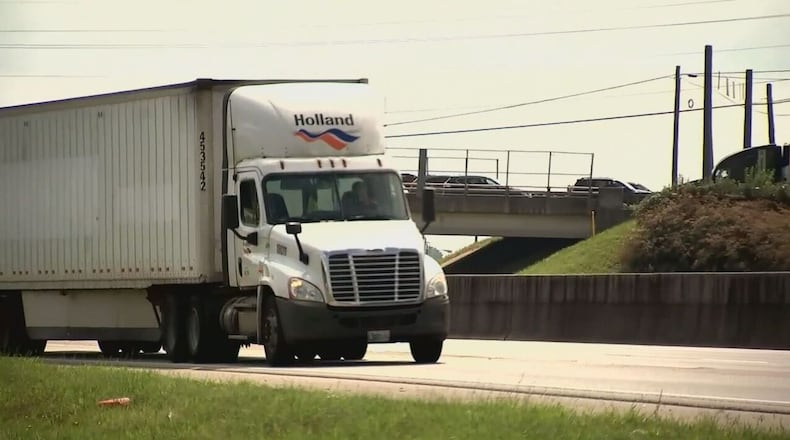One will regulate electric-vehicle chargers and pave the way for the state to tax the electricity used by automobiles. The other temporarily allows heavier trucks on Georgia highways and could eventually lead to billions of dollars in new road construction spending.
The new laws come as the number of trucks and electric vehicles on the road is expected to proliferate in coming decades. Lawmakers have been trying for years to figure out how to accommodate them while raising more money to build and maintain roads and bridges.
Senate Bill 146, which Gov. Brian Kemp signed into law Thursday, addresses the need for electric-vehicle chargers. It authorizes the state Department of Agriculture to regulate vehicle chargers much like it does gasoline pumps today. Among other things, the department will test chargers to ensure customers get the electricity they pay for.
The law, which takes effect July 1, will also allow convenience stores and other businesses to sell electricity for vehicle charging by the kilowatt hour. Currently, businesses with charging stations usually charge motorists by the hour or the minute.
Advocates say the move will encourage businesses to install chargers. It will also allow the state to tax the electricity at public charging stations to help pay for road construction. That could be an important source of revenue as gasoline taxes fade amid an expected electric-vehicle boom.
The legislation establishes a tax of 2.84 cents per kilowatt hour — in line with the taxes in other states. The tax will be in addition to the $211 annual registration fee paid by electric-vehicle owners.
That’s led some critics to say the legislation amounts to double taxation of electric-vehicle owners. They also worry SB 146 will discourage businesses from providing free charging because the tax will apply whether they charge motorists or not.
Legislators expect to revisit electric-vehicle taxing issues next year before the new tax takes effect in January 2025.
Meanwhile, Kemp on Friday signed House Bill 189, which increases the maximum weight of some trucks on Georgia highways for two years.
State law limits trucks to 80,000 pounds, though trucks carrying certain products can weigh up to 84,000 pounds. HB 189, which took effect upon Kemp’s signature, allows trucks carrying agricultural and forestry products to weigh up to 88,000 pounds.
HB 189 was one of the most hotly contested bills in this year’s legislative session. The agricultural and timber industries said higher truck weights will allow them to ship their goods more efficiently and save money at a time of high inflation. Traffic safety advocates, the Georgia Department of Transportation and local governments said heavier trucks will mean more traffic fatalities and cost taxpayers billions of dollars more for road maintenance.
A compromise emerged late in the session. HB 189 will allow higher weights for two years. That will give legislators time to hash out a permanent compromise and to find ways to pay for billions of dollars in road and rail improvements that GDOT says will be needed to accommodate an expected boom in freight traveling across Georgia.
About the Author
The Latest
Featured



